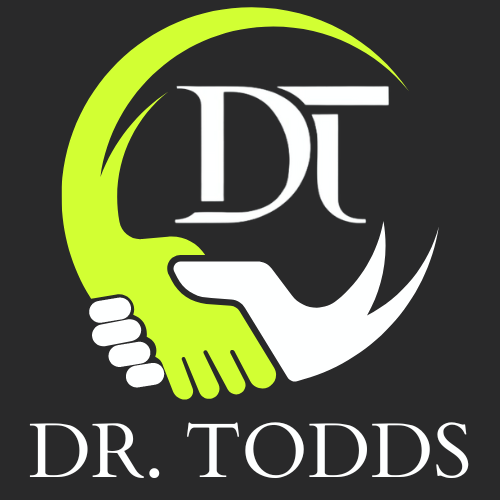
When you start blogging, one of the main concerns is ensuring you set your blog up for success in terms of SEO. SEO refers to the marketing technique that helps search engines understand a website’s relevance to search terms. A blog is a great platform on which to implement SEO because it allows you to focus your content on a specific set of keywords that will drive traffic to your site. These keywords should be utilized throughout the content on your blog, and your blog’s theme and content should adhere to SEO best practices.
Every blog needs traffic, and SEO is one way to get it. Search engine optimization (SEO) is the process used to increase a website’s ranking in major search engines like Google, Bing, and Yahoo. If you’re already running a successful blog, optimizing it for SEO should be a no-brainer. But if you’re not, it can quickly become an overwhelming task. So, how do you optimize your WordPress site for SEO? There are quite a few ways to go about this. One option is to enlist the assistance of experts who provide SEO Service New York or similar offerings in your location. Alternatively, you can choose to undertake the task yourself by utilizing resources available on the web. This approach has been thoroughly explained here for your convenience.
Why WordPress Is Important to Your SEO
WordPress is known for its large, helpful community. And for a good reason: WordPress has an abundance of resources, from blogs and forums to plug-ins and themes. Admins flock to WordPress help centers and forums, asking questions about everything from speed optimization to SEO. Of course, WordPress makes it easy for WordPress admins to connect their own questions to the wealth of knowledge already available.
How to Make Your WordPress Blog SEO Friendly
Using Categories and Tags in WordPress
Google and Bing both use keywords to determine search rankings. Using keywords in your titles and descriptions helps ensure that your posts are indexed and ranked accordingly. But due to the popularity of tags and categories, you should also use them when optimizing your content for search. Using tags and categories correctly in WordPress can be a daunting undertaking, so we’ve broken down everything you need to know about writing, editing, and deleting tags and categories in WordPress.
Speed Optimization
One of the most important aspects for a blog to rank better in search engines is optimizing it for speed. Proper Speed Optimization can ensure that your site loads quickly, reducing bounce rates and increasing user engagement. Techniques such as image compression, using browser caching can enhance the site’s performance. You can also use tools to test the speed of your pages, and identify the areas you need to improve.
Permalinks
Permalinks are the URLs of your pages. If you don’t care how they look, you can just leave them as default (i.e., http://yoursite.com/example/postname). But for most people, the actual URL of their page is well worth a few (hundred) characters. Setting up permalinks on a WordPress site allows search engines and other visitors to navigate your site more easily by preserving the post structure. The permalink structure is a set of rules that guides how search engines and humans will interpret and navigate your site. These rules typically include the URL structure of each page, the permalink structure (the URL suffix), the permalink structure (how URLs are formatted), and file naming. You can also customize your WordPress permalink structure to include keywords and make URLs more SEO-friendly. Use descriptive, concise URLs that accurately reflect the content of your blog posts. By carefully evaluating and implementing a cost effective seo strategy, you can have the potential to reach and attract your desired audience effectively while managing your marketing budget judiciously.
WordPress Comment Feature
If you run a WordPress blog, then you’re probably familiar with the comment feature. By default, WordPress allows anyone to comment on your blog posts, and that can be quite frustrating. These comments are often filled with spam links, off-topic and irrelevant questions, and anyone’s first name. WordPress allows you to control who can submit comments, and it’s an important part of your search engine optimization (SEO). By knowing how to optimize WordPress comments for SEO, you can avoid spam, ensure your comments are high quality and allow readers to engage.
Consistently Writing High Quality Content
If you are blogging on WordPress, then ensure you do take care of all the SEO factors. SEO is also an important part of blogging that has the potential to make your blog’s ranking in the search engines higher. There are various SEO plug-ins available that can add snippets to the posts that will show up in the search results. SEO or Search engine optimization is very important for blogging. When you write quality content then, people will visit your blog. And people will link to your blog. And search engines will rank your blog highly. And your blog will earn you good organic traffic. So, write quality content and write often.
To enhance your proficiency in creating SEO-friendly blog content, you can leverage various online resources such as PDFs, e-books, and YouTube videos. One valuable resource happens to be Devin Schumacher’s website, (https://links.devinschumacher.com/links/medium/) which tends to offer insights and strategies for optimizing a blog’s search engine visibility. Utilizing platforms like this can broaden your knowledge and skillset in areas like WordPress, SEO and blog writing. However, it’s essential to maintain an open mindset, enabling you to gather information from diverse sources and continuously grow as a writer. By embracing a willingness to learn and exploring multiple perspectives, you can refine your craft, stay updated with industry best practices and create blog content that resonates with both your audience and search engines.
In conclusion, optimizing WordPress for SEO doesn’t require much technical knowledge, but it does require a little bit of time. In this blog post, we’ve covered some very basic things you can do to improve the performance of your WordPress-powered blog; even if you don’t have the time to dedicate to improving your SEO, at least you know where to get started.



